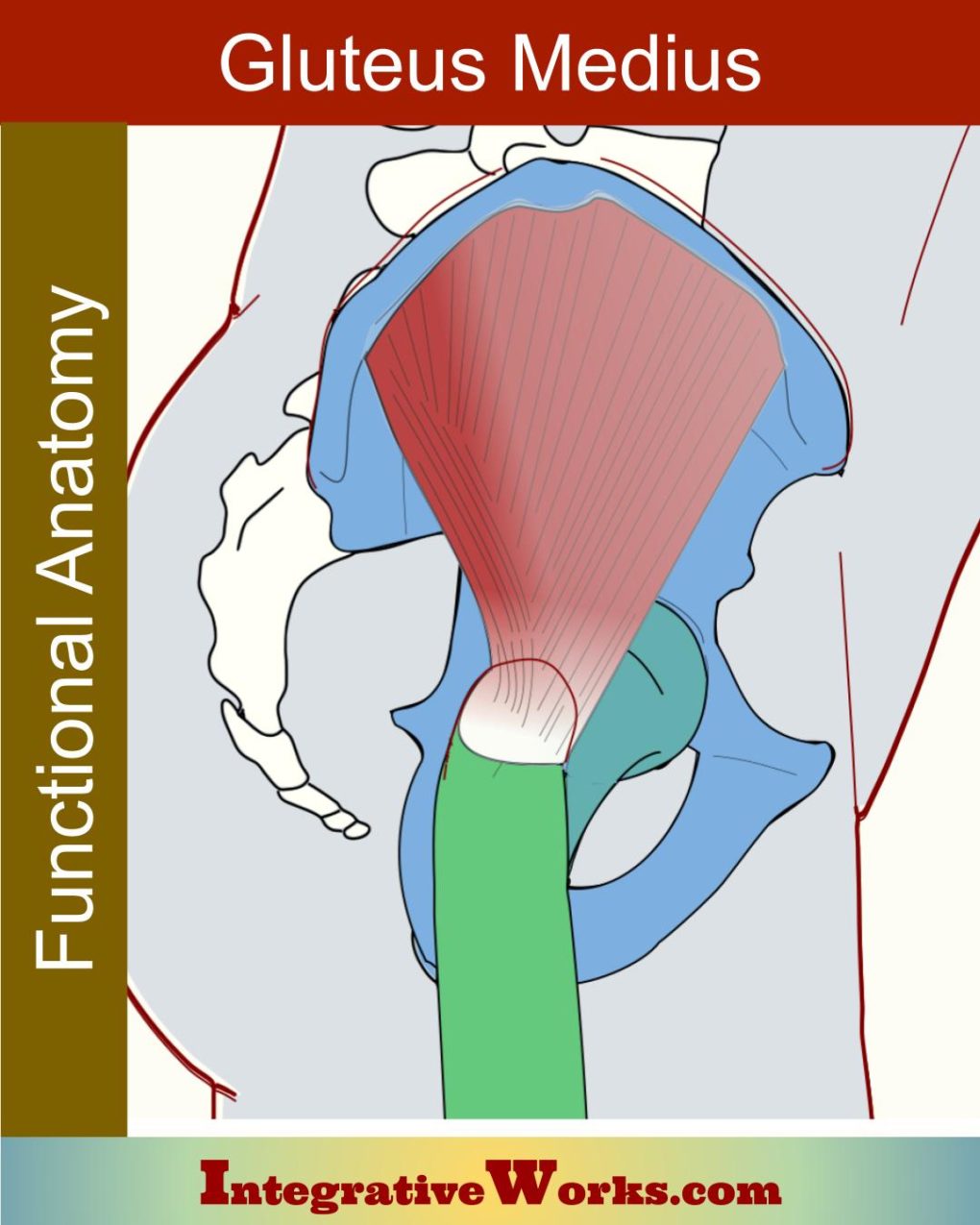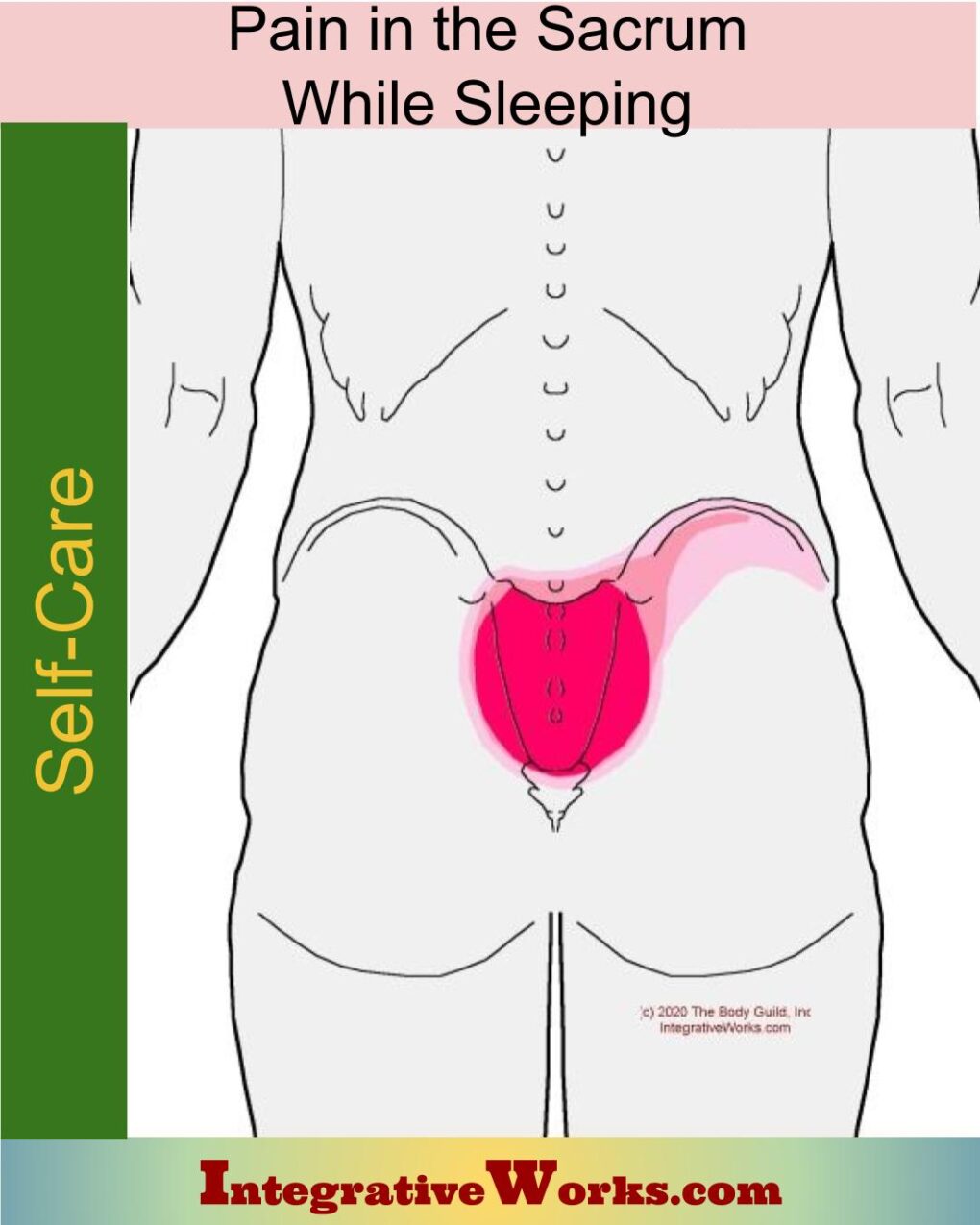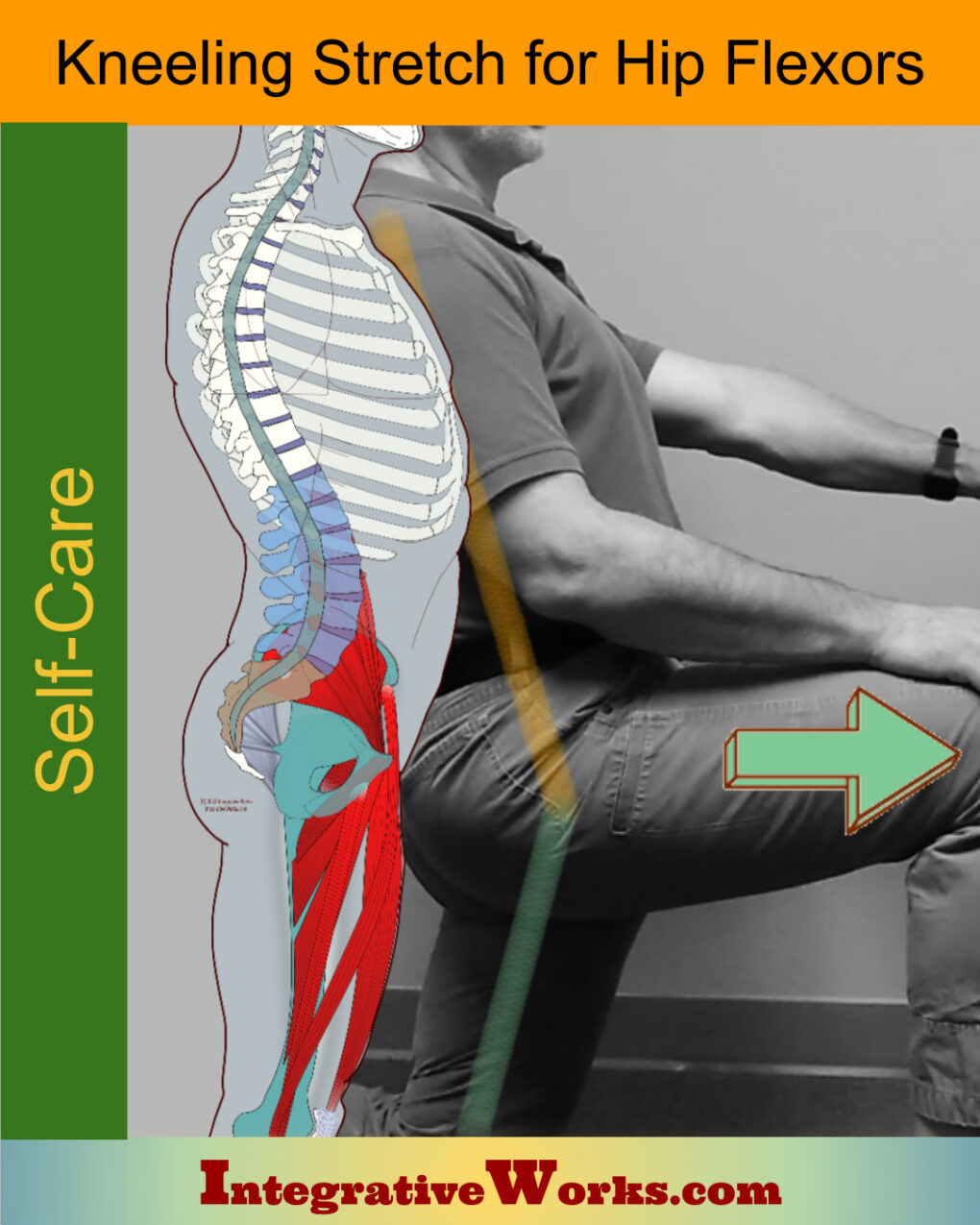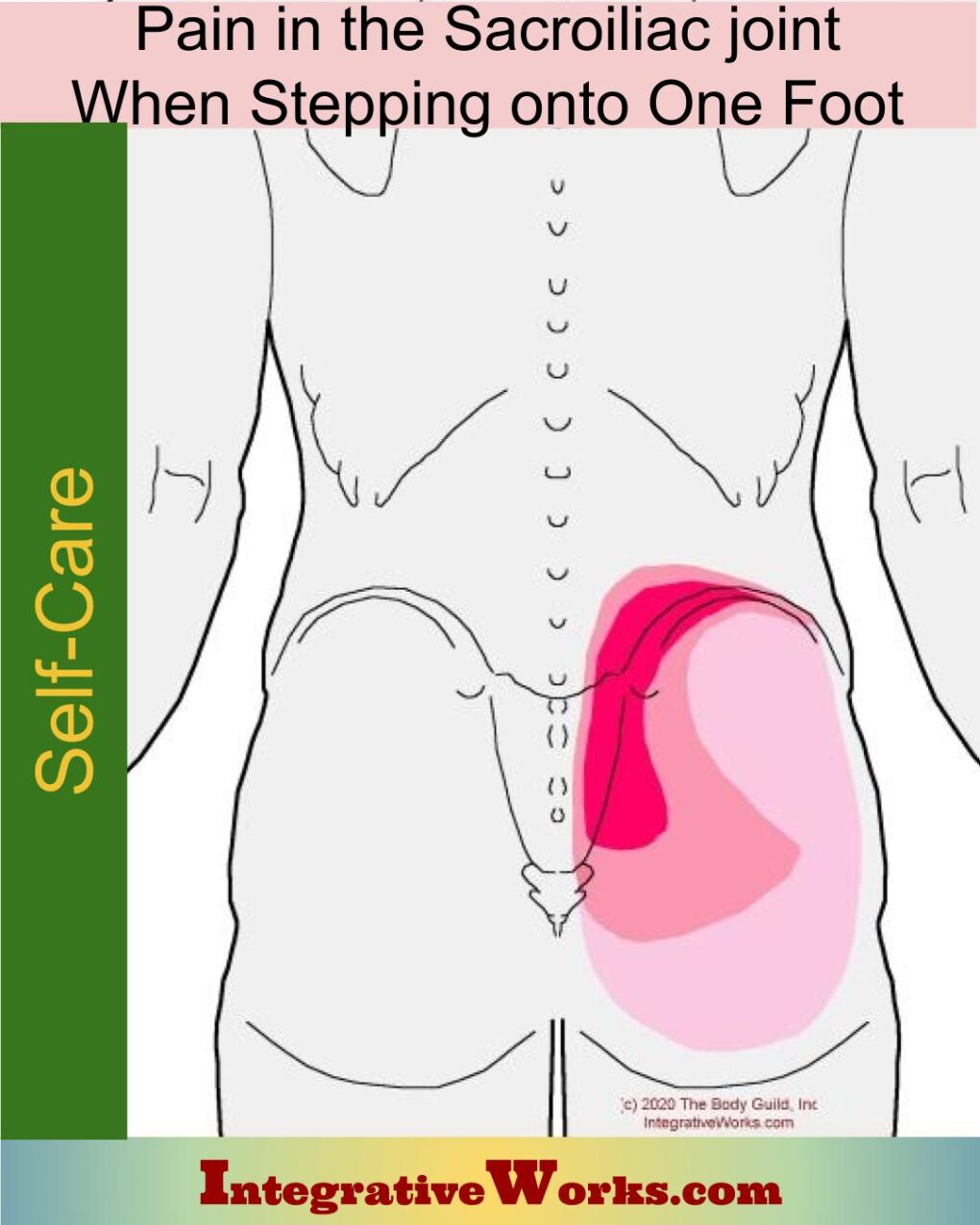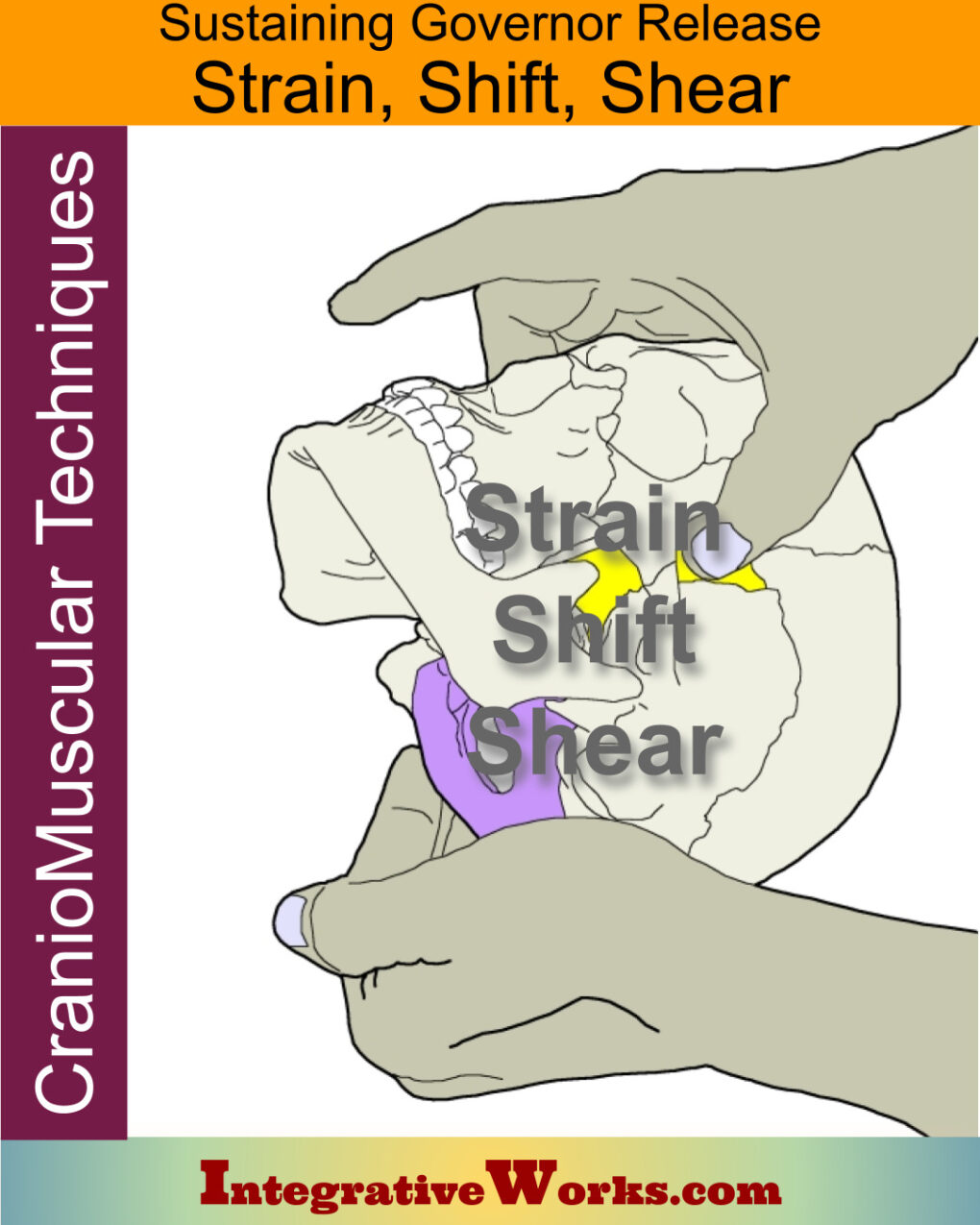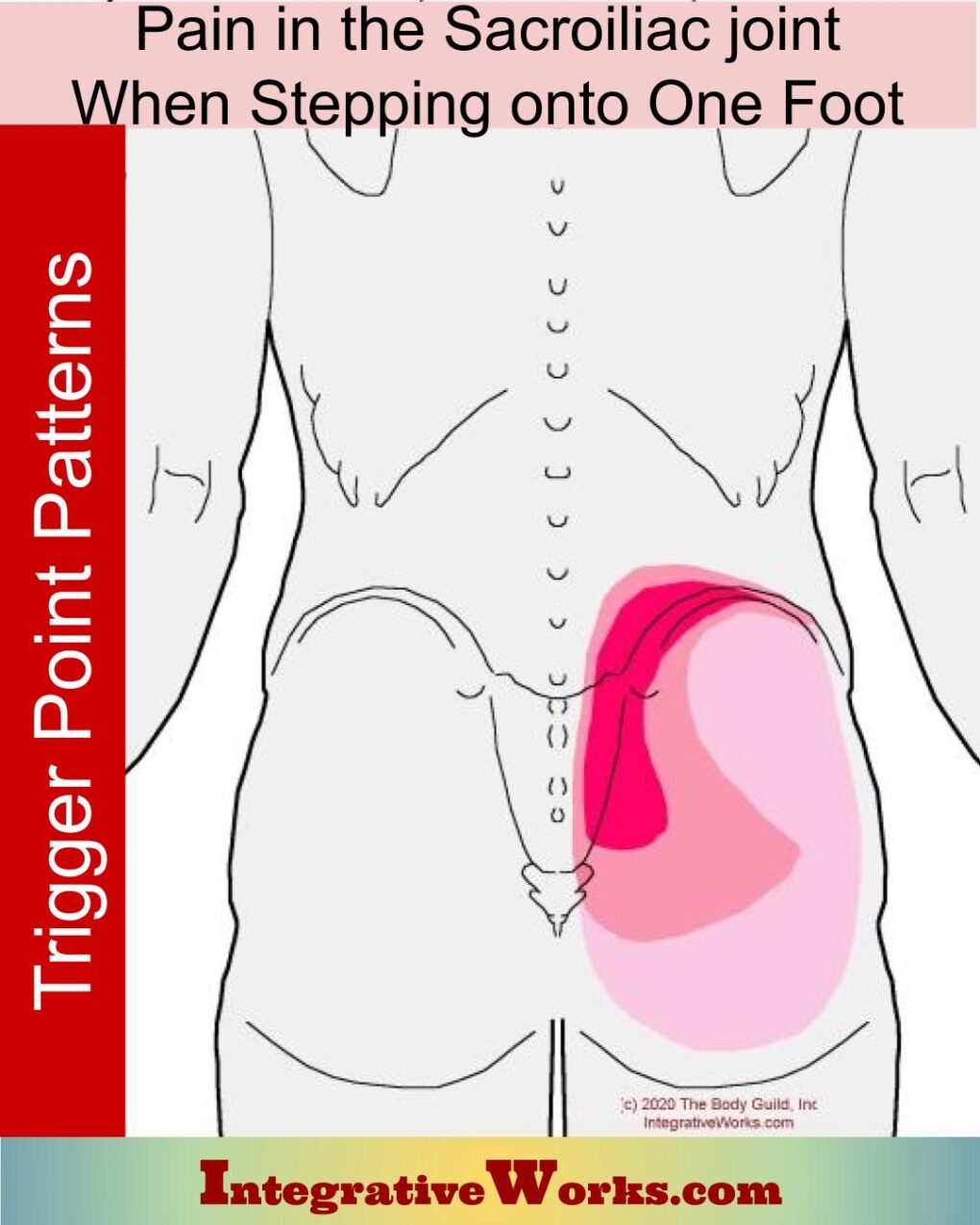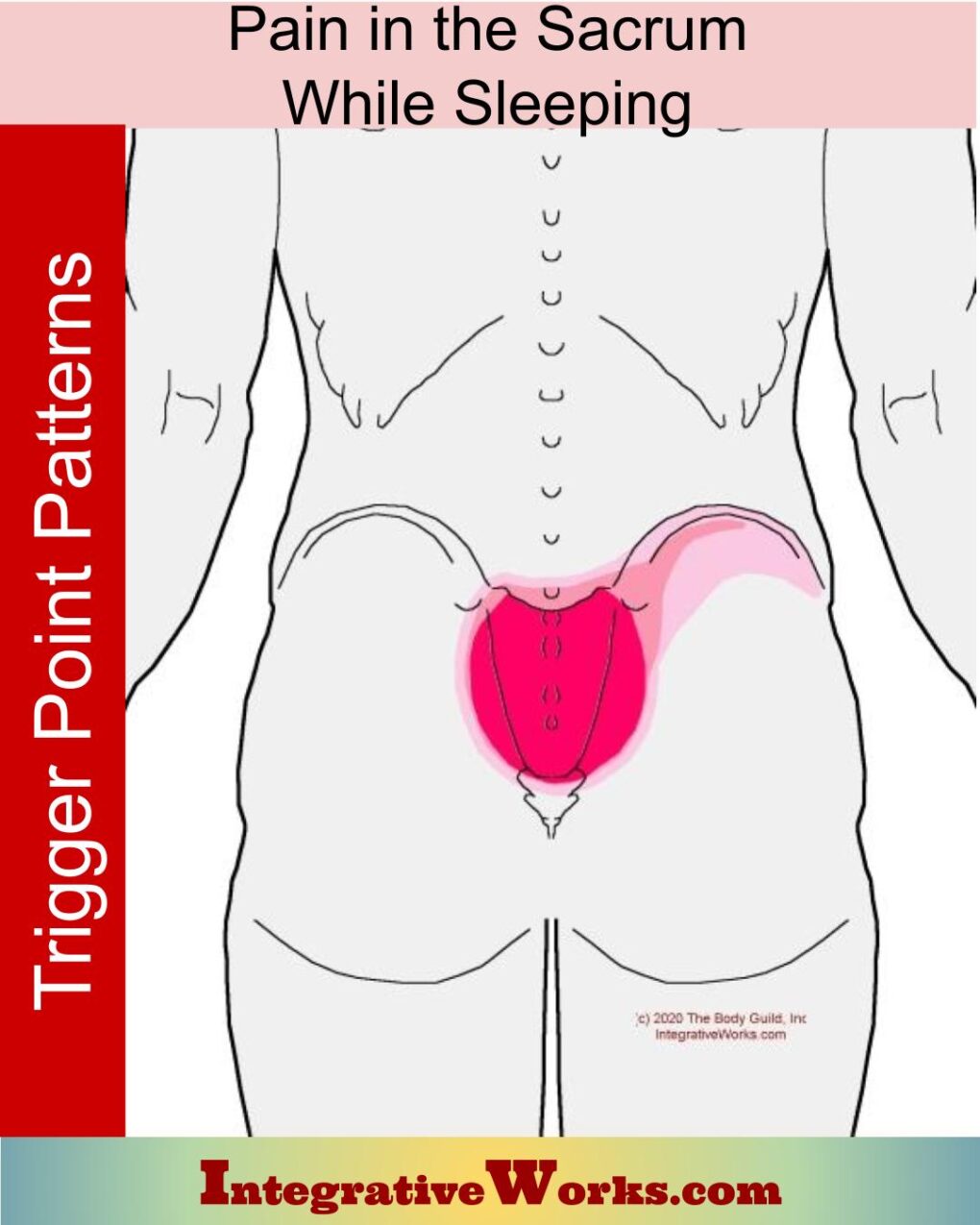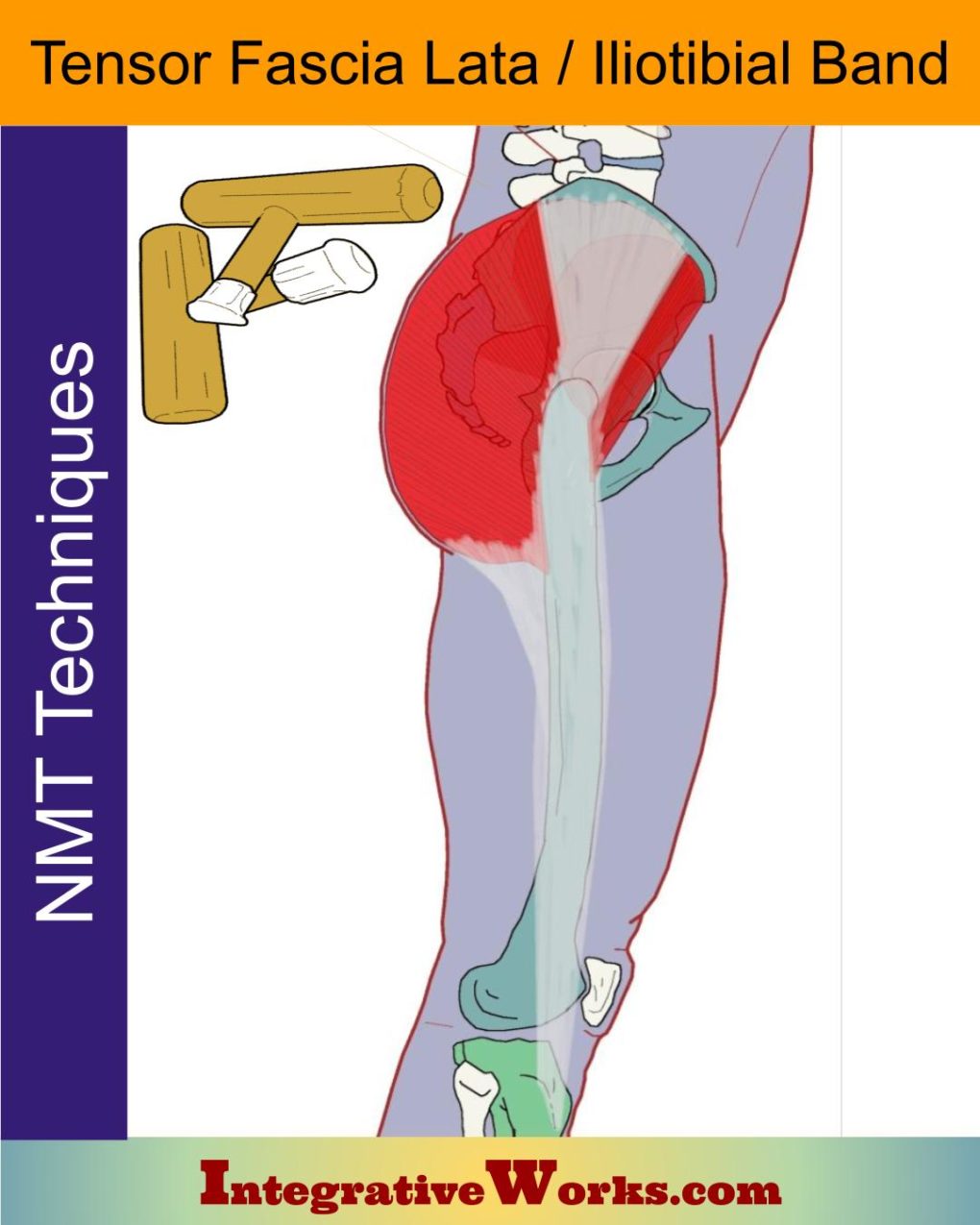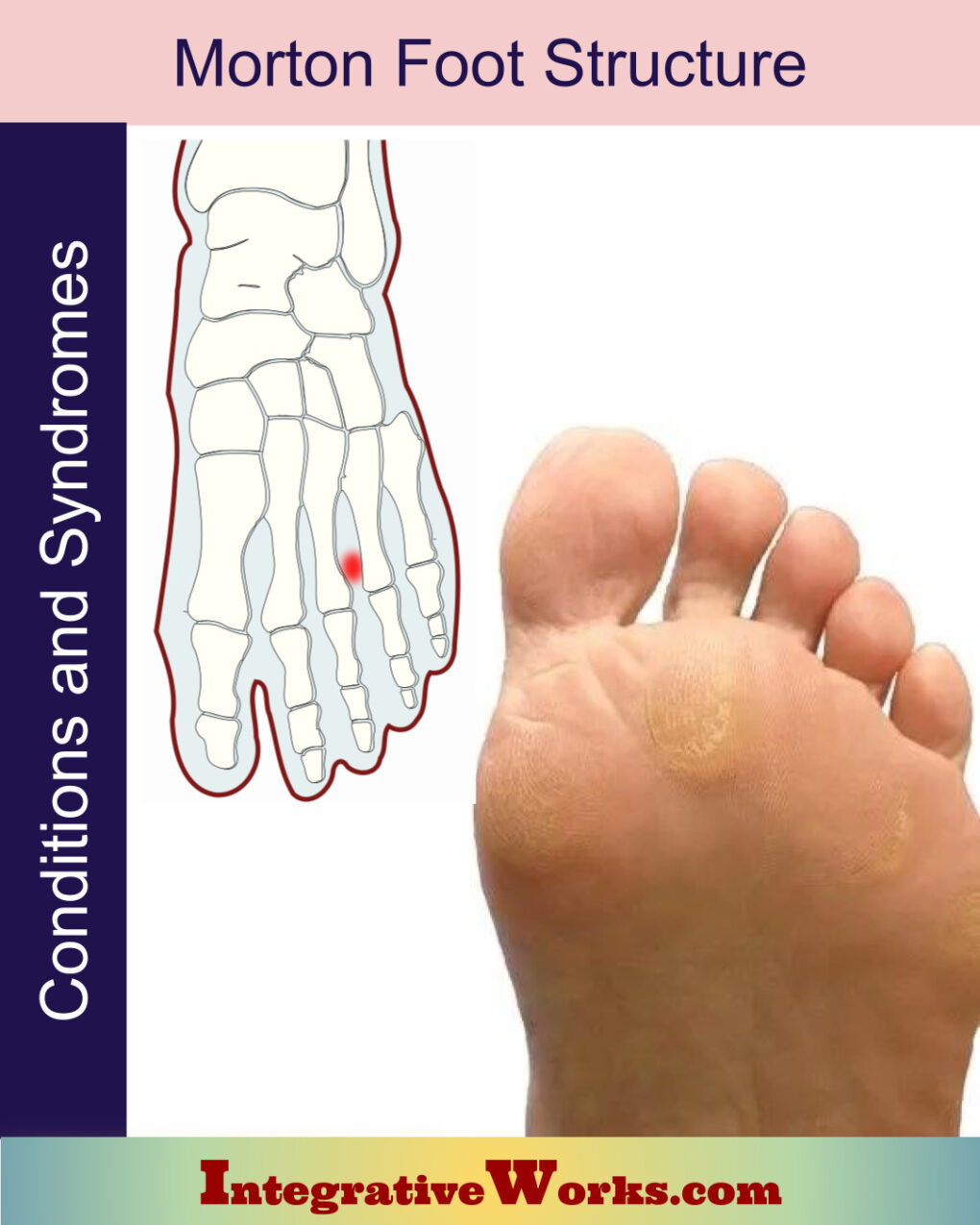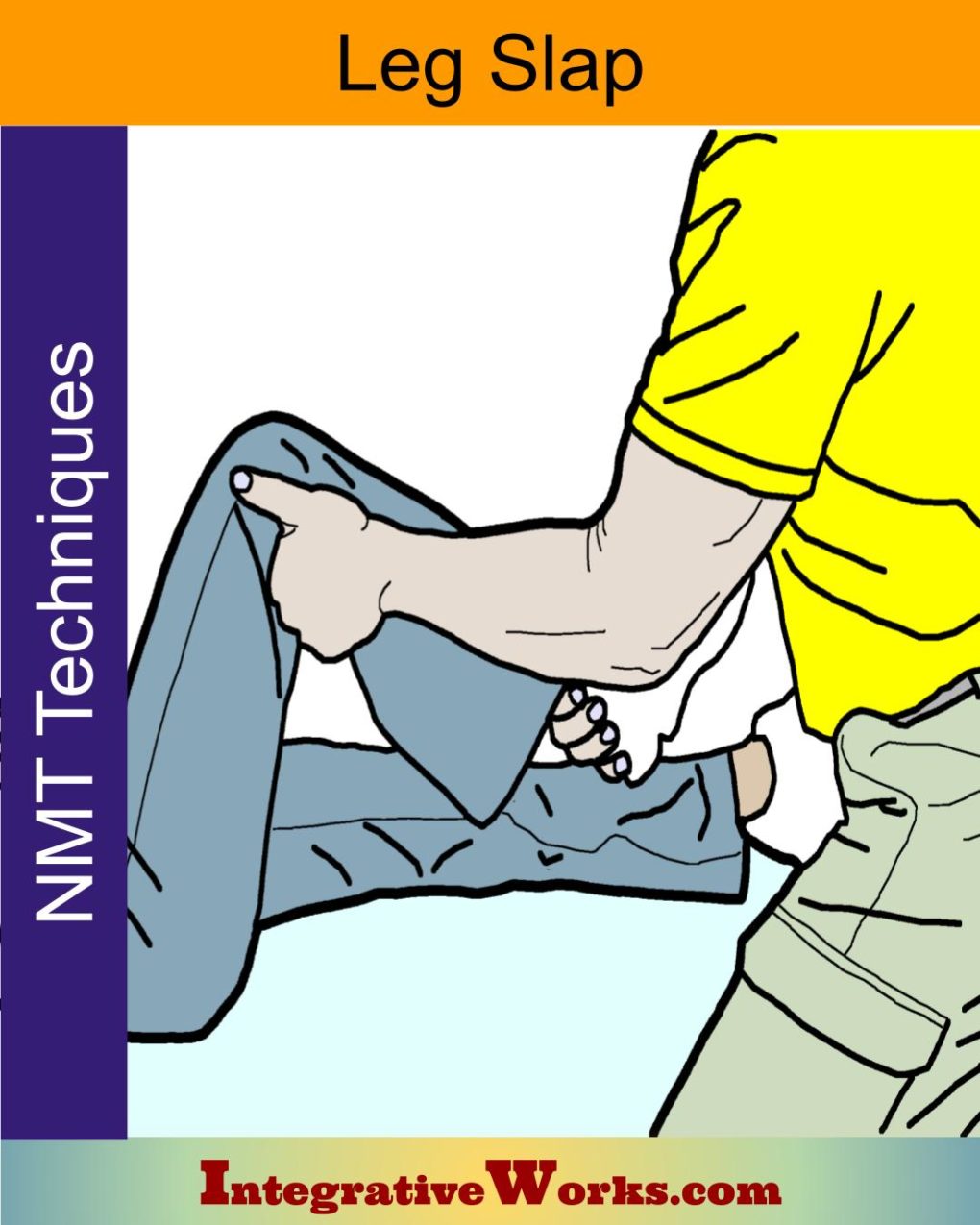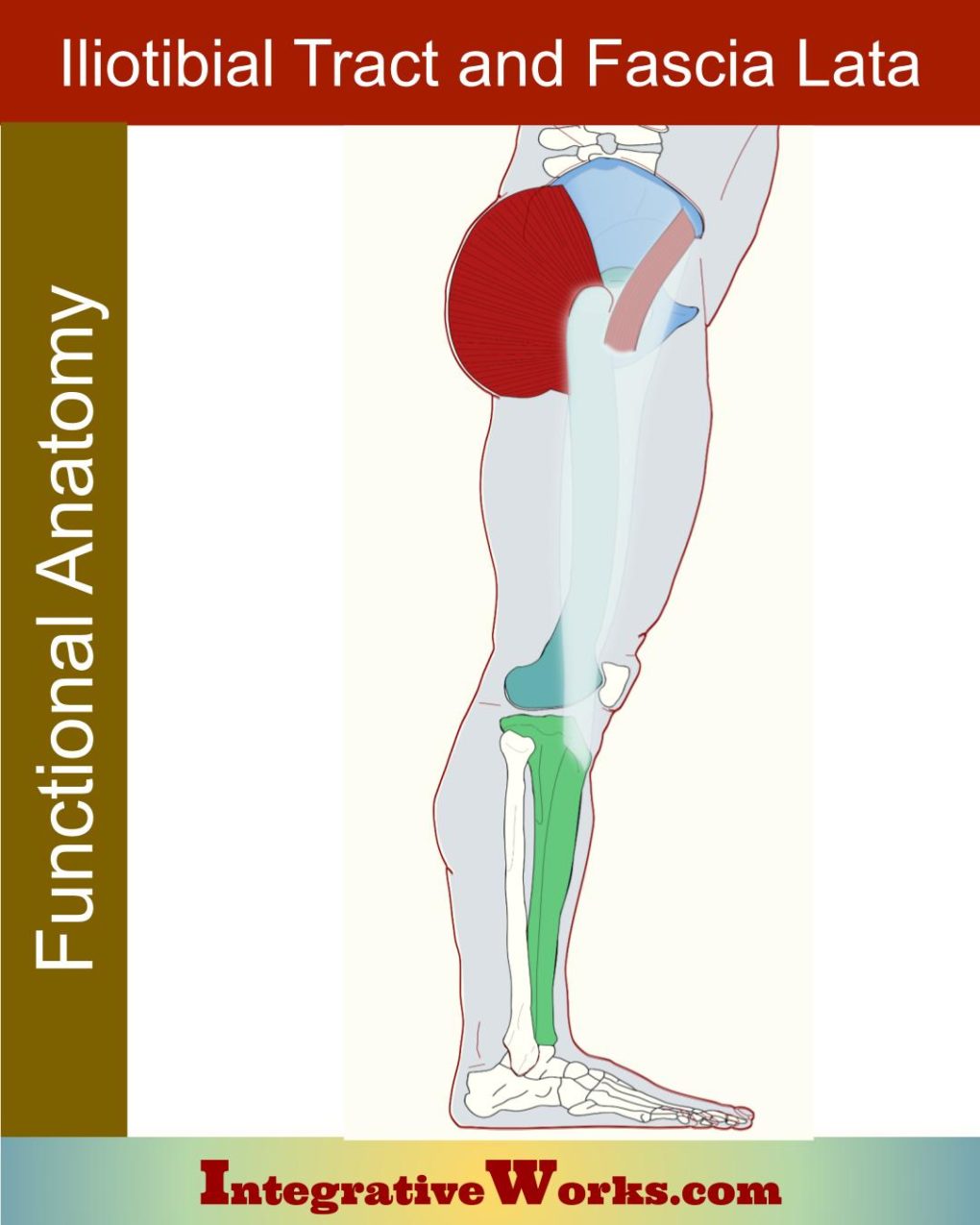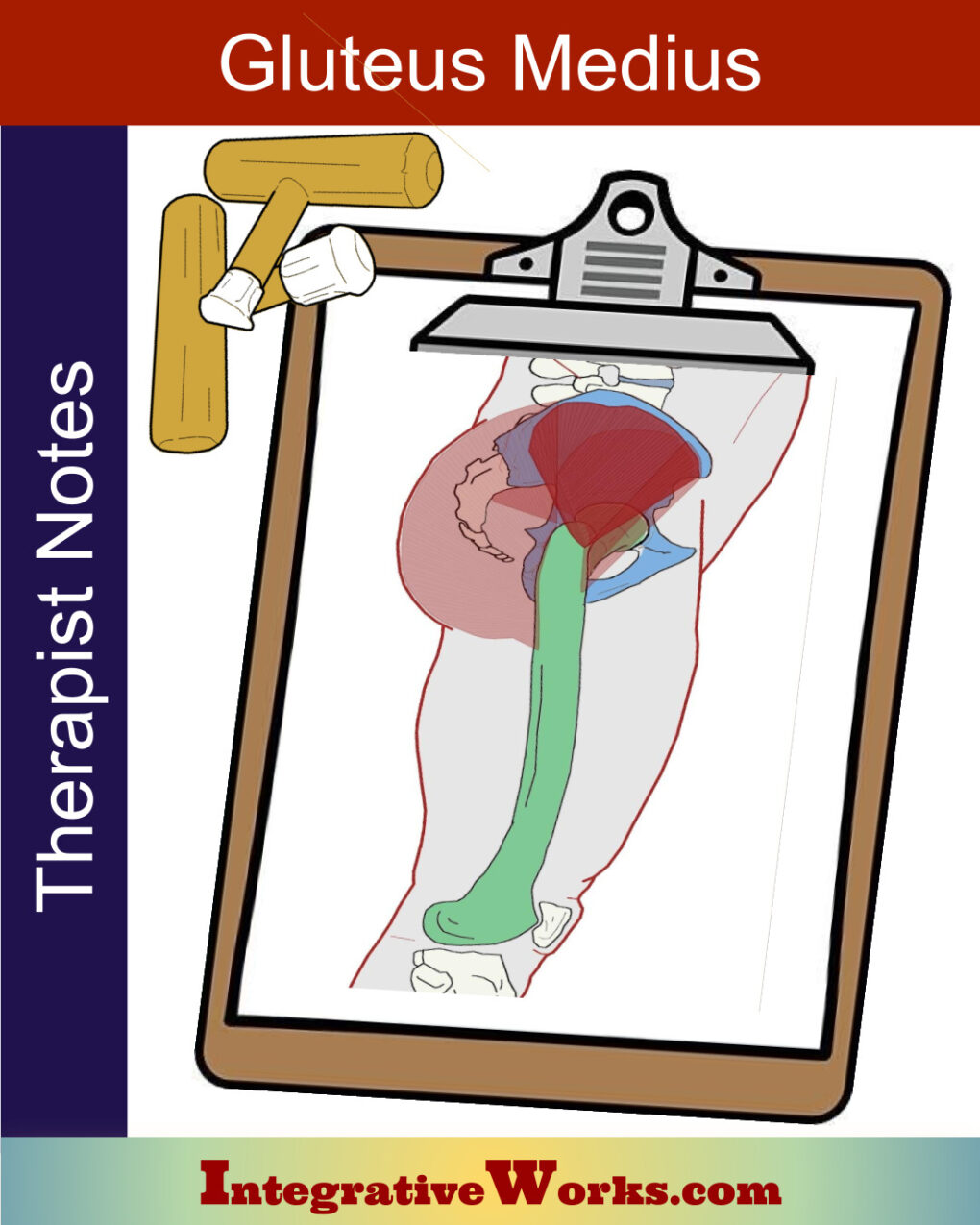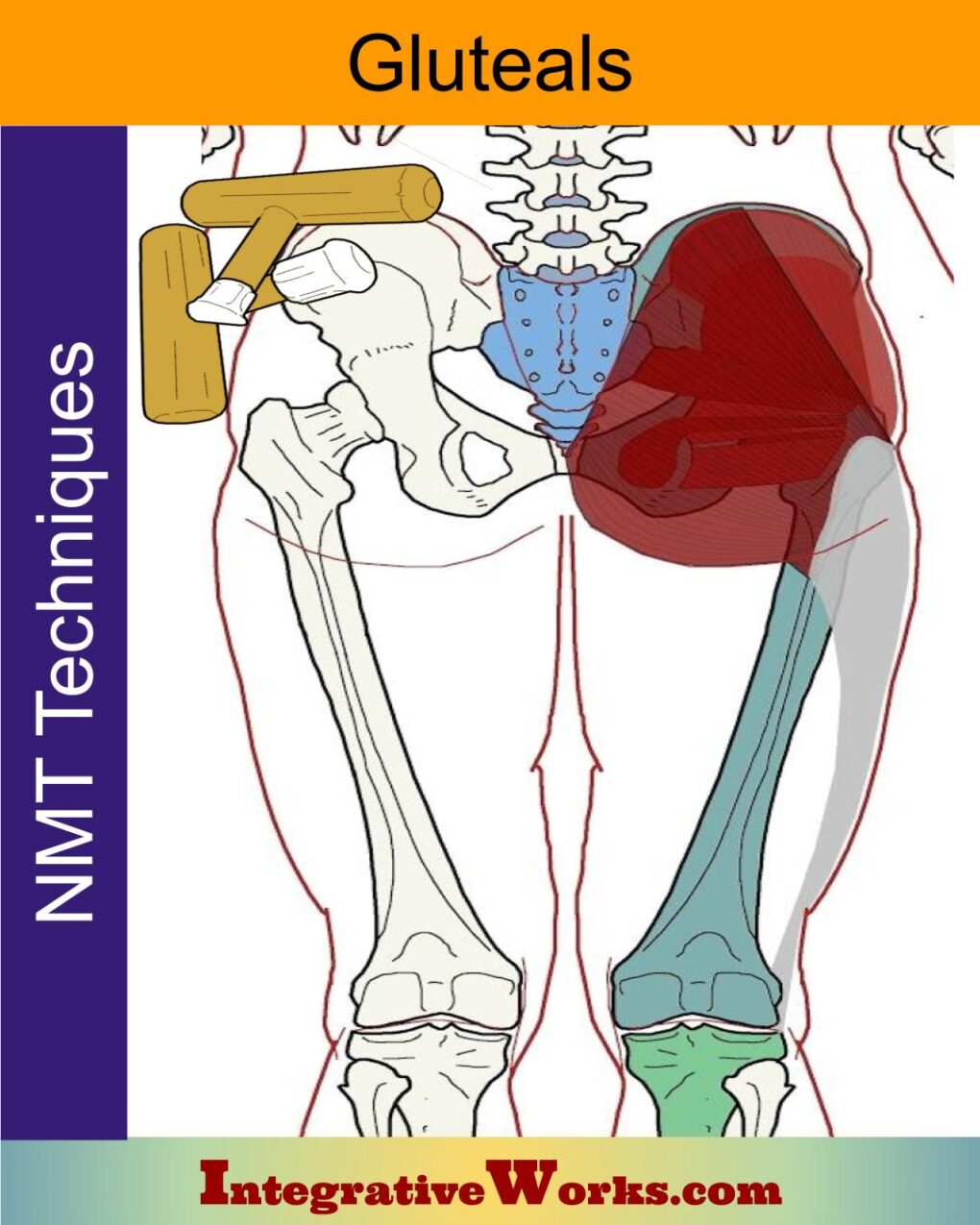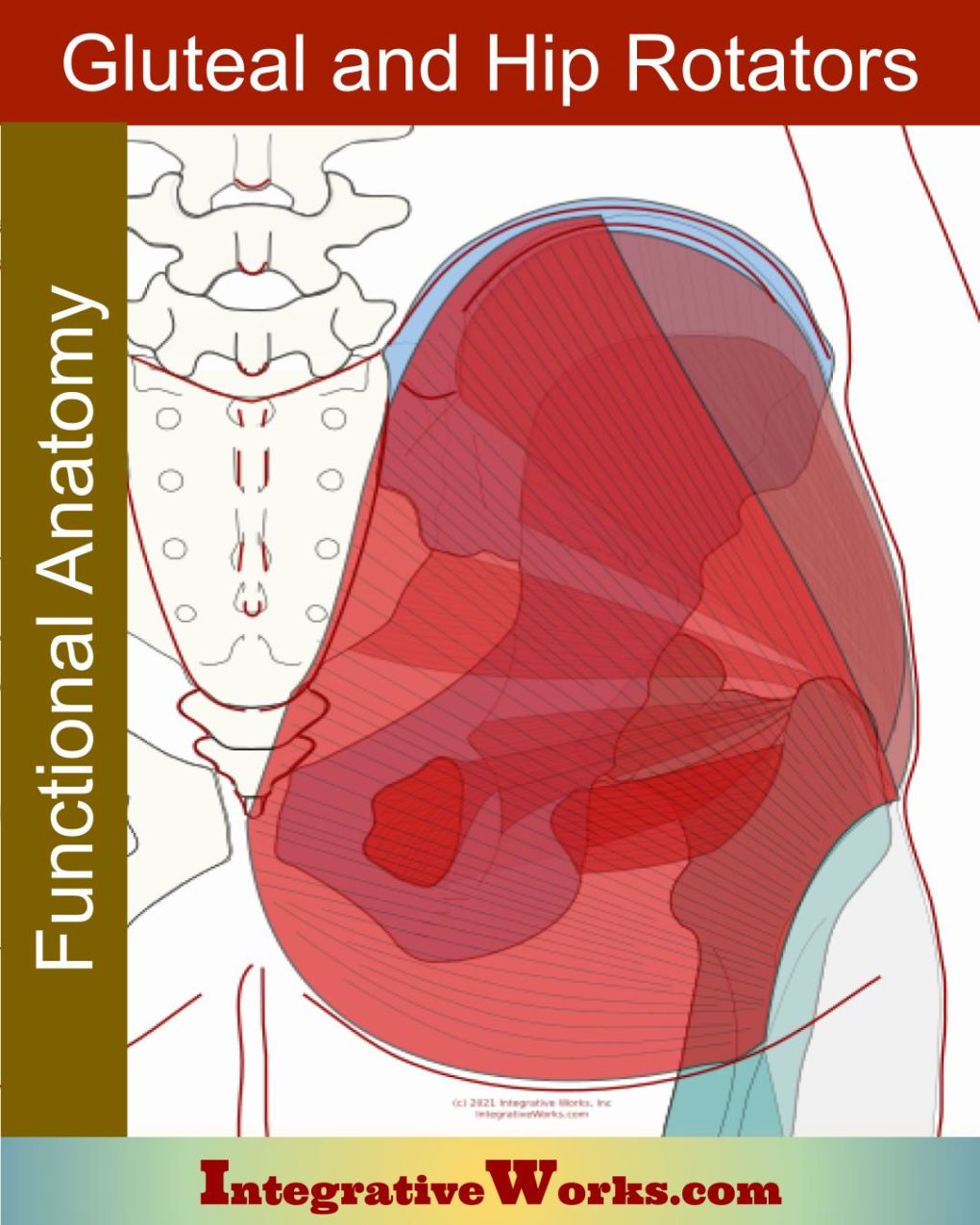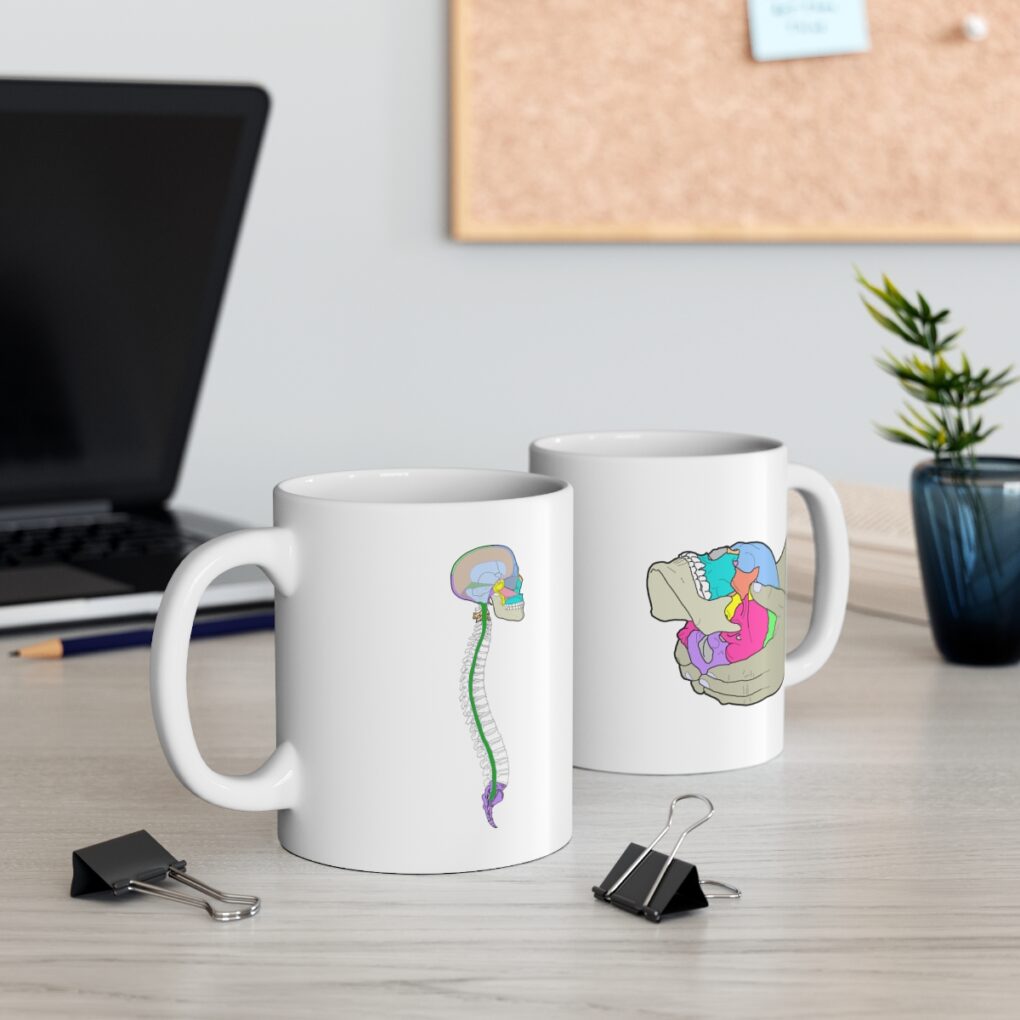Overview
The anatomy of gluteus medius is similar to several other muscles like infraspinatus, and masseter. Likewise, it has three bellies and a tough fascial covering.
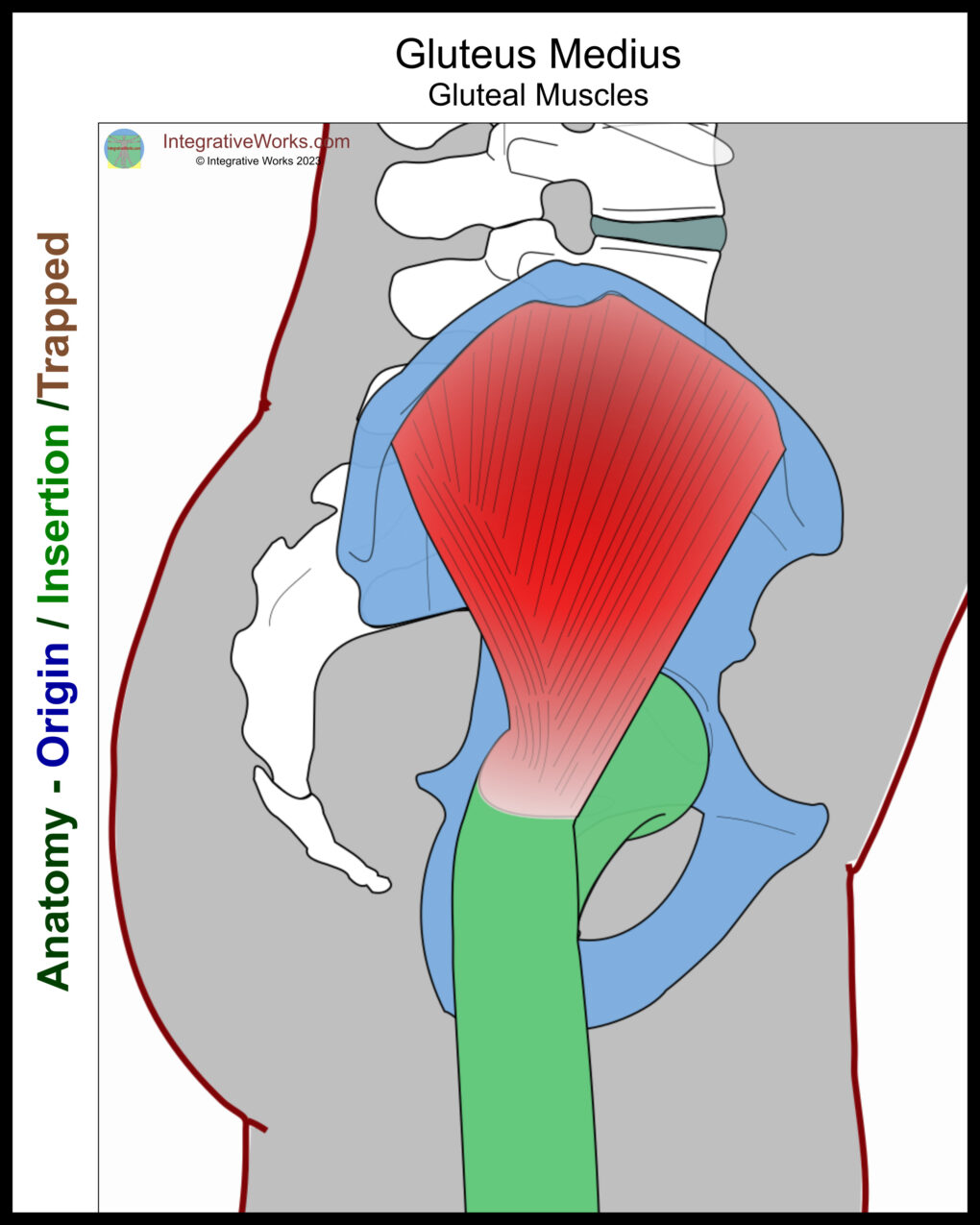
The gluteus medius is a fan-shaped muscle on the lateral hip that overlays the gluteus minimus. The posterior portion lies under the gluteus maximus. Commonly, it has three sections that converge into a single insertion tendon.
Origin
- lateral exterior surface of the ilium between the anterior and posterior gluteal lines
Insertion
- superior, anterior aspect of the greater trochanter
Function
- abduction and medial rotation of the hip joint
Nerve
- superior gluteal nerve – (L4-S1)
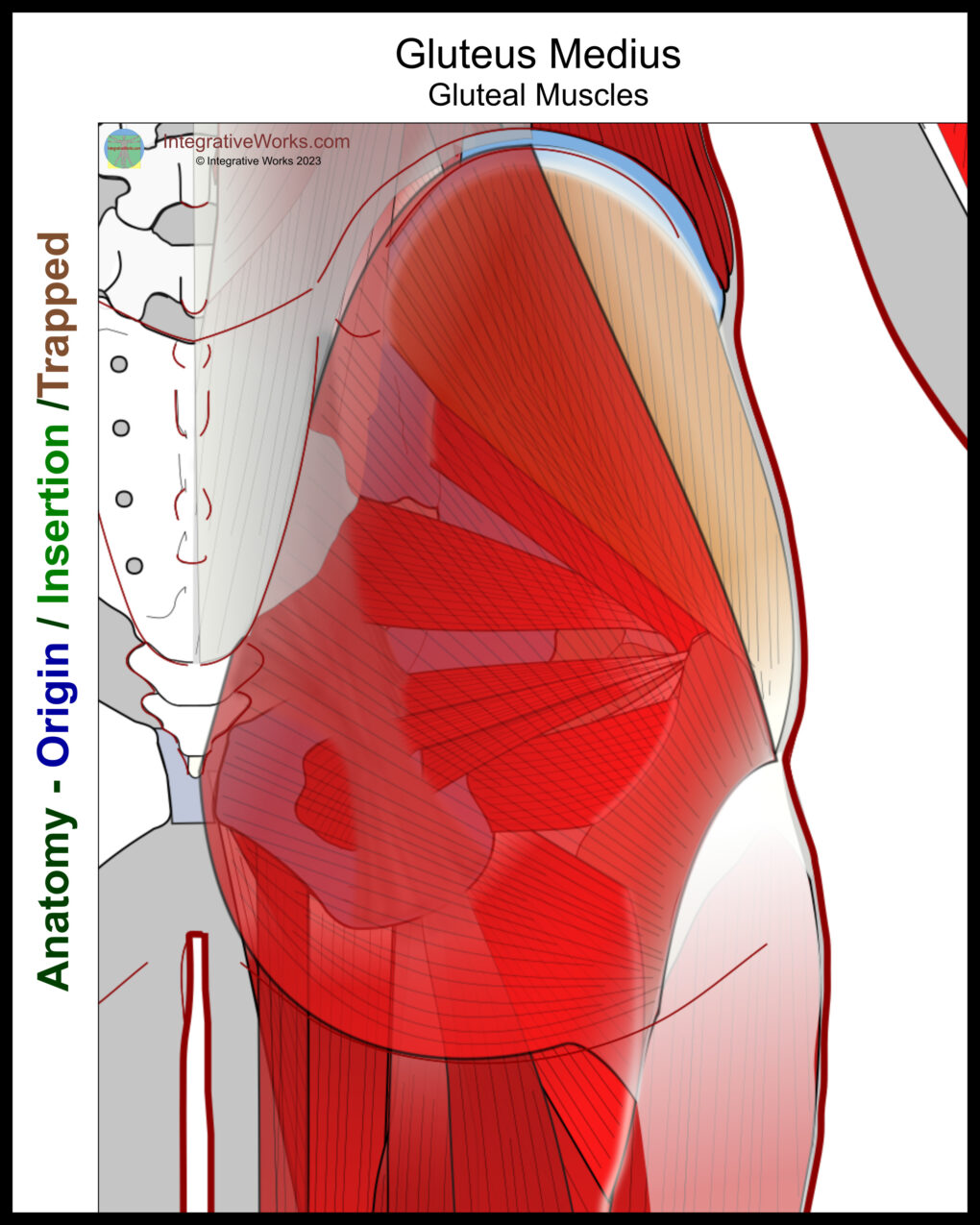
Attachment Details
It originates from the exterior surface of the ilium between the posterior gluteal line (by the crest) and anterior gluteal lines. The anterior two-thirds are covered and anchored by the gluteal aponeurosis of the fascia lata.
It forms a flat tendonous insertion on the superolateral aspect greater trochanter. This attachment is posterior to the tendon(s) of the gluteus minimus. The tendon of the posterior gluteus medius passes under the tendon of the anterior section as they attach to the greater trochanter. Especially on wider, usually female, pelvic structures, the insertion of the two sections pulls on the trochanter at nearly right angles from each other.
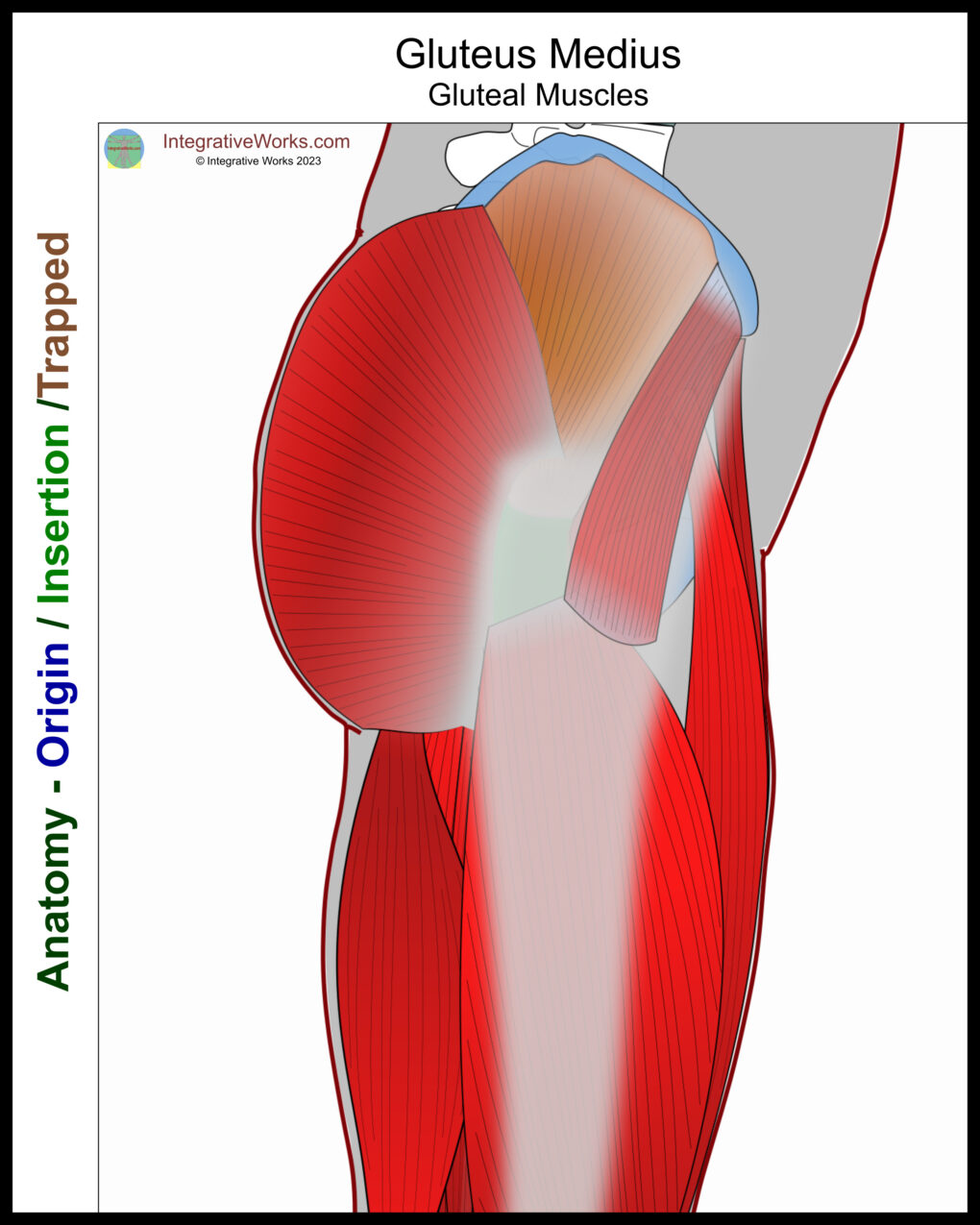
Functional Considerations
Its attachments are better positioned to abduct the hip joint than the gluteus minimus. Still, it is very involved in medial rotation when the hip is flexed. This abduction shifts the pelvis laterally when the foot is fixed.
It works with the TFL muscle and the contralateral quadratus lumborum in suspending the opposite hip while the ipsilateral hip is weight-bearing and the contralateral leg swings.
Anomalies, Etc.
More commonly, reported anomalies include two distinct sections, fusing with the piriformis and fusing with the gluteus minimus.
Related Posts
Self Care – Single-Legged Deadlifts
Self Care – Releasing hip trigger points with a tennis ball
Self Care – Pain in the Sacrum or Crest of the Hip While Sleeping
Self Care – Kneeling Stretch for Hip Flexors
Self Care – Hip Pain when Stepping onto One Foot
SBS – Strain, Right Shift and Shear
Pain Through the Hip Joint when Standing on One Foot
Pain in the Sacrum or Crest of the Hip When Sleeping on Side
Neuromuscular Protocol – Iliotibial Band
Morton’s Foot Structure
Leg Slap Pelvic Mobilization
Iliotibial Tract and Fascia Lata – Functional Anatomy
Gluteus Medius – Massage Therapy Notes
Gluteals – Neuromuscular Massage Protocol
Gluteal and Lateral Hip Rotator Muscles – Functional Anatomy
Support Integrative Works to
stay independent
and produce great content.
You can subscribe to our community on Patreon. You will get links to free content and access to exclusive content not seen on this site. In addition, we will be posting anatomy illustrations, treatment notes, and sections from our manuals not found on this site. Thank you so much for being so supportive.
Cranio Cradle Cup
This mug has classic, colorful illustrations of the craniosacral system and vault hold #3. It makes a great gift and conversation piece.
Tony Preston has a practice in Atlanta, Georgia, where he sees clients. He has written materials and instructed classes since the mid-90s. This includes anatomy, trigger points, cranial, and neuromuscular.
Question? Comment? Typo?
integrativeworks@gmail.com
Interested in a session with Tony?
Call 404-226-1363
Follow us on Instagram

*This site is undergoing significant changes. We are reformatting and expanding the posts to make them easier to read. The result will also be more accessible and include more patterns with better self-care. Meanwhile, there may be formatting, content presentation, and readability inconsistencies. Until we get older posts updated, please excuse our mess.

